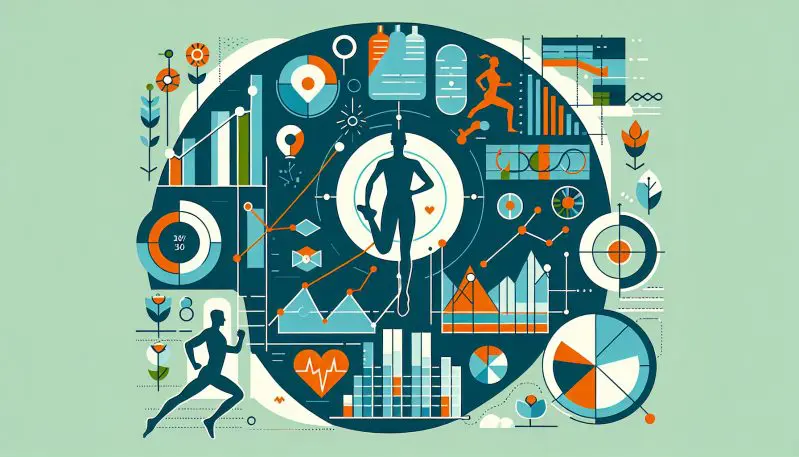In an age of information overload, consumers are increasingly turning to data-driven wellness solutions, seeking effective and science-backed products and services to enhance their health. The demand for credible research and evidence-based practices has never been higher. However, while the trend towards data-driven wellness promises numerous benefits, it also comes with its own set of challenges and pitfalls. This article explores the rise of data-driven wellness, highlighting the benefits, risks, and the need for critical evaluation of science-backed health solutions.
The Rise of Data-Driven Wellness
Data-driven wellness involves using scientific research, data analytics, and personalized information to inform health and wellness decisions. This approach is gaining popularity for several reasons:
1. Informed Decision-Making:
• Consumers are more educated and health-conscious, preferring to base their health choices on solid evidence rather than anecdotal advice.
2. Technological Advancements:
• The rise of wearable devices, health apps, and online platforms allows individuals to track their health metrics and access personalized recommendations.
3. Transparency and Trust:
• Companies that provide data-backed health solutions are seen as more trustworthy, as they rely on credible research and scientific validation.
4. Personalized Health:
• Data-driven wellness solutions offer personalized insights tailored to an individual’s unique health profile, making them more relevant and effective.
The Allure of Science-Backed Health Solutions
The appeal of data-driven wellness lies in its promise of precision and efficacy. By leveraging data and scientific research, these solutions aim to provide:
1. Accurate Health Assessments:
• Tools and devices that offer accurate measurements of various health metrics, such as heart rate, sleep quality, and physical activity.
2. Personalized Recommendations:
• Tailored advice on diet, exercise, and lifestyle changes based on an individual’s health data and genetic makeup.
3. Evidence-Based Products:
• Supplements, fitness programs, and wellness services that are backed by scientific studies and clinical trials.
The Dark Side: Risks and Challenges
Despite the benefits, the shift towards data-driven wellness is not without risks and challenges. Here are some of the critical issues associated with this trend:
1. Data Privacy and Security:
• Collecting and storing health data raises significant privacy and security concerns. Personal health information is sensitive, and any breach can lead to serious consequences.
2. Misinterpretation of Data:
• The abundance of health data can be overwhelming, and misinterpretation is a real risk. Without proper understanding, consumers might make misguided decisions that could harm their health.
3. Over-Reliance on Technology:
• While technology can provide valuable insights, over-reliance on devices and apps can lead to a disconnect from intuitive and holistic health practices. Not all health aspects can be quantified.
4. Quality of Research:
• Not all science-backed solutions are created equal. Some products and services may base their claims on preliminary or biased research, leading to ineffective or even harmful recommendations.
5. Commercial Exploitation:
• The wellness industry is lucrative, and some companies may prioritize profit over accuracy, promoting products and services with exaggerated claims and limited evidence.
Expert Opinions and Warnings
Health experts emphasize the importance of critical evaluation when it comes to data-driven wellness solutions. Dr. Lisa Thompson, a prominent epidemiologist, warns, “While data-driven wellness has the potential to revolutionize personal health management, consumers must remain vigilant. It’s essential to question the sources of data, the quality of research, and the motivations behind the products and services being promoted.”
Real-Life Consequences
The implications of misusing or misinterpreting data-driven wellness solutions can be significant. Here are some real-life scenarios:
• Case 1: Inaccurate Health Tracking:
• A fitness enthusiast relied heavily on a wearable device that inaccurately tracked their heart rate. Believing they were within a safe range, they pushed their workouts too hard, leading to overtraining and injury.
• Case 2: Misleading Genetic Testing:
• An individual took an at-home genetic test that claimed to provide personalized diet recommendations. The test results were based on limited research, leading to dietary changes that resulted in nutritional deficiencies and health issues.
Balancing Benefits with Caution
To harness the benefits of data-driven wellness while minimizing risks, consumers should adopt a balanced and informed approach:
1. Verify Sources:
• Ensure that the products and services are backed by high-quality, peer-reviewed research. Look for transparency in how data is collected and analyzed.
2. Consult Healthcare Providers:
• Discuss any data-driven health recommendations with healthcare professionals to validate their appropriateness and safety for your specific needs.
3. Protect Your Data:
• Use reputable platforms that prioritize data privacy and security. Be aware of what data is being collected and how it will be used.
4. Stay Informed:
• Continuously educate yourself about the latest developments in health research and technology. Be wary of trends and products that seem too good to be true.
5. Embrace a Holistic Approach:
• While data and technology are valuable tools, they should complement, not replace, holistic health practices that consider mental, emotional, and social well-being.
Conclusion
Data-driven wellness represents a significant advancement in personal health management, offering the potential for more precise and effective health solutions. However, it also comes with inherent risks and challenges that must be carefully navigated. By critically evaluating the sources and quality of health data, consulting with healthcare professionals, and balancing technology with holistic practices, consumers can make informed decisions that genuinely enhance their well-being.





